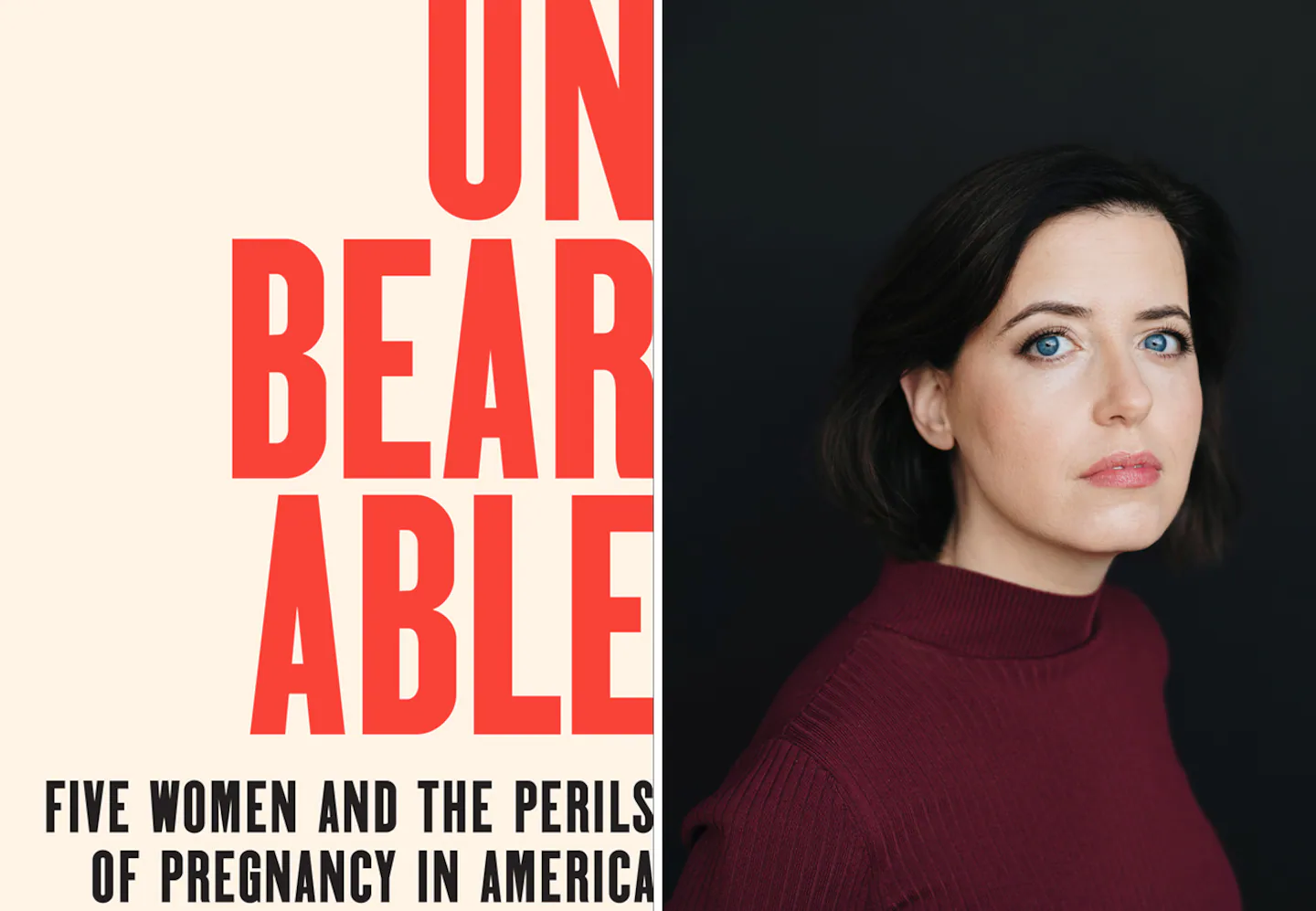Copyright The Boston Globe

In the wake of Dobbs v. Jackson Women’s Health Organization, the 2022 Supreme Court decision that overturned Roe v. Wade, New England remains a bastion of abortion rights. But local activists are going further, advocating for reproductive justice policies that serve all pregnant people, whether they miscarry, end their pregnancies, or need prenatal care and postnatal support. In Massachusetts, “An Act Ensuring Access to Full Spectrum Pregnancy Care” is currently in committee, while New Hampshire recently passed and funded “Momnibus 2.0,” a bill designed to improve maternal mental health, strengthen workforce protections, and expand family supports. Journalist Irin Carmon’s searing new book, “Unbearable: Five Women and the Perils of Pregnancy in America,” provides an inarguable brief for this comprehensive vision of reproductive justice. Carmon focuses on Alabama, “the vanguard of fetal personhood” and a leader in both anti-abortion policy and criminalizing pregnancy, and New York City, where abortion laws may be liberal but racial disparities in maternal mortality are worse than in Alabama. Her account of how women in America are increasingly considered “vessels for embryos or fetuses” propels her claim that the ways this country treats women who want to have abortions and women who want to have babies are two sides of the same coin, where “no matter who you are, or what privileges you enjoy, nothing can guarantee your personal safety or security.” If this description makes “Unbearable” sound like a lecture or broadside, it is anything but. Instead, it’s a gripping page-turner: revelatory, horrifying, infuriating, sometimes inspirational, always informative. How does Carmon accomplish this? Through stories, which sociologist, writer, and MacArthur Fellow Tressie McMillan Cottom recently argued “are the only things that have ever mattered in the history of the world.” This book’s particularly deeply researched, well-told stories, both about the recent pregnancies of the subtitle’s five women and the last 200 years of reproductive care and policy, matter enormously. Advertisement Canadian Maggie Boyd is stunned by the workings of American health care after she moves to Brooklyn to be with her American partner. When she gets pregnant, she decides to have her baby with a midwife at the Brooklyn Birthing Center. But as her son’s birth goes terribly wrong, her story becomes emblematic of the systemic failures that characterize New York’s public hospitals. Hali Burns, a happily partnered mom who has largely overcome her youthful drug addiction with the help of suboxone, has the misfortune of living in Etowah County, Alabama, a national leader “in arresting people for charges related to pregnancy.” When she fails a drug screen in the sixth month of pregnancy, her baby is taken from her, she is taken to jail, and she enters a nightmarish catch-22 where “They make it almost impossible to survive. But they want you to excel at surviving.” Advertisement Christine Fields, who lived in 30 foster homes, has given her two children a stable family with her partner, Jose Perez. When she gets pregnant again, she returns to the midwife “she adored” at Woodhull, the same hospital where Maggie ends up. But it’s impossible to ignore the impact of race — Maggie and her husband are white, Christine is Black, Jose is Latino — on their outcomes. Lesbian lawyer Alison Mollman moves to Montgomery, Alabama, to work at the Equal Justice Initiative. There she falls in love, gets married, and decides to have a baby. But her experiences with the fertility industry and multiple miscarriages reveal the chilling impact of Dobbs on women who want to be pregnant, not just women who don’t. Two unexpected pregnancies make Yashica Robinson a teen mother and influence her decision to become an OB/GYN. Recruited to work at an abortion clinic in Huntsville, Alabama, she also builds an obstetrics practice with some of the lowest Cesarean and highest VBAC rates in the region and develops “a reputation as someone who would actually listen to her pregnant patients.” But the incessant political, regulatory, and personal pushback she gets as a Black woman doctor who did abortions come to a head as she tries to open a freestanding birth center. Carmon’s historical, legal, and political stories, interwoven with the women’s stories, are just as compelling — and damning. Maggie’s experience leads to the history of natural childbirth and midwives in America, including the “Boomers, some feminist and others simply counterculture, who stereotyped or essentialized nonwhite birth traditions.” Hali’s story is contextualized by the injustices of chemical endangerment charges and the ways pregnant and postpartum women are treated in jail. Christine surfaces the complexities of Woodhull Hospital, known for both its commitment to midwifery and its racial disparities. Alison’s personal and professional experiences anchor accounts of the emergence of fetal personhood and concomitant erosion of women’s rights. Yashica’s journey becomes the occasion for Carmon to sketch the history of modern obstetrics and the efforts of male doctors to control birth — and Black midwives — starting with J. Marion Sims, who created the field in Montgomery, Alabama, by brutally experimenting on enslaved women “largely for the benefit of white women’s reproductive health.” Advertisement Carmon’s conclusion is at once a lament and a call to action: “If America believed that people who can get pregnant really matter, it would truly invest in our care, no matter what kind was needed, rather than offer neglect, infantilization, or criminalization.” Her book is required reading for anyone who believes — or needs to be convinced — that this is true. Rebecca Steinitz is the author of “Time, Space, and Gender in the Nineteenth-Century British Diary.” UNBEARABLE: Five Women and the Perils of Pregnancy in America By Irin Carmon Atria, 320 pages, $30



